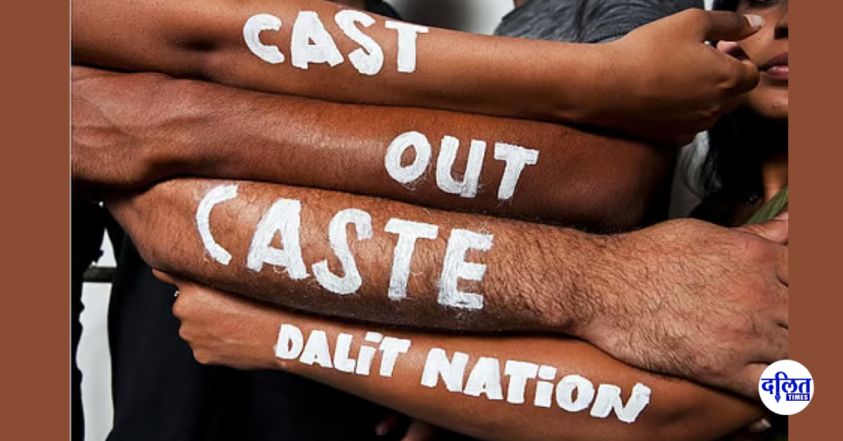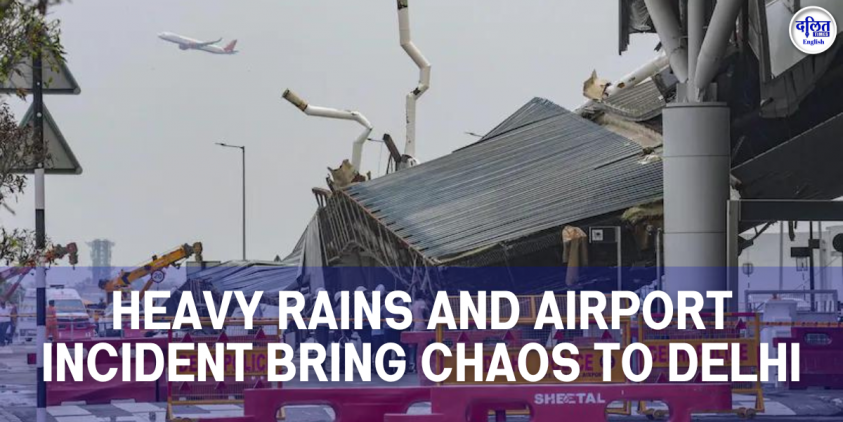In the heart of Haryana’s Hisar district, the 70 Valmiki families of Madanhedi village wake each morning to a silence that has nothing to do with peace. It is the silence of locked grocery shops, of dry taps, of unmilled grain, of no water tankers, and of withheld milk deliveries. It is the silence enforced by a Jat-majority village—1,500 households strong—where caste continues to govern access to life itself.
This is not a dispute. It is a calculated, systemic punishment for democratic disobedience.
The spark? Ravindra, a young Dalit man, dared to vote against the dominant community’s chosen candidate—Jat leader and “son-in-law” of the village, Jessi Pethwal—in the September 2024 Haryana Assembly elections. The price for such autonomy: a violent assault, an FIR under the SC/ST (Prevention of Atrocities) Act, and an unofficial but brutally enforced social boycott of the entire Valmiki basti.
The boycotted Dalits also claimed that the upper caste locals had illegally occupied their farmlands while they had been driven out. Camping outside the Deputy Commissioner’s office since fleeing their village, they have been demanding justice.
Every mechanism of everyday survival has been turned into a weapon. The flour miller refuses to grind their wheat. The grocer declines to sell rice or salt. The milkman cuts off their children’s nutrition. The water supplier denies them a drop to drink. Even the barber won’t touch their hair. For water alone, these families now walk 6–7 kilometers each day to neighboring villages.
This attack, however, is not just about one election. It is rooted in the long-standing socio-economic degradation of Valmiki’s in Haryana. Traditionally relegated to sanitation work, the Valmiki community remains one of the most stigmatised Dalit groups in North India. Even today, they are disproportionately employed as manual scavengers and sanitation workers under exploitative contracts, often without job security, dignity, or proper wages. Despite the Prohibition of Employment as Manual Scavengers and their Rehabilitation Act, 2013, Valmikis continue to clean sewers and toilets, denied alternate livelihoods or state rehabilitation.

In rural Haryana, this caste location is compounded by violent spatial segregation. Valmiki bastis often exist on the peripheries of villages, both literally and socially. Access to clean water, drainage, and public infrastructure is minimal. Education and employment remain dreams deferred by caste discrimination. These families are kept at the bottom not by chance, but by centuries of caste engineering.
And then, when the Valmiki families exercised their right to legal remedy—when they filed a police complaint and refused to settle under duress—they were met not with protection, but with vengeance. The khap panchayat convened, declaring that unless Ravindra withdrew the FIR, the boycott would continue. When that failed, the panchayat wielded a deadlier tool: eviction. Notices were slapped on Dalit families accusing them of “encroaching” on panchayat land, despite the fact that they’ve lived there for generations. Meanwhile, dominant caste families who occupy the same land continue to enjoy electricity, paved roads, and full state services—no questions asked.
What is unfolding in Madanhedi is not an aberration. It is a modern continuation of the age-old caste discipline that punishes assertion and rewards submission. It is the caste system adapting itself to the language of legality while still functioning with feudal brutality. It is the “invisible” violence of social exclusion, the kind that doesn’t spill blood in the street but bleeds dignity from every pore of the oppressed.
Also Read : FEDO at Three Decades: Power, Participation, and the Continuing Fight for Dalit Women’s Rights in Nepal
Let us be clear: this is not merely a social boycott. It is collective punishment for democratic assertion by Dalits. It is a criminal conspiracy that violates the right to equality (Article 14), the right to life with dignity (Article 21), and the right to freedom of expression and political participation (Article 19) under the Indian Constitution. Section 3(1)(zc) of the SC/ST (Prevention of Atrocities) Act explicitly criminalizes such social boycotts. The state’s inaction makes it complicit.
Where is the urgency from the Haryana government? Where is the outrage from the National Commission for Scheduled Castes? Where is the suo moto cognizance by the courts that rush to intervene for temples and traffic but remain blind to four months of water denial?
The silence of the state only amplifies the arrogance of caste power.
But if Madanhedi reveals the face of caste cruelty, it also reveals the spine of Dalit resistance. Despite threats, despite blank papers being thrust into their hands, despite economic strangulation, the Valmiki families have not withdrawn the FIR. They have not apologized for voting freely. They have chosen to suffer with dignity rather than live in submission. That is Ambedkar’s dream in practice not in Parliament speeches, but in the refusal of the most oppressed to bow.
This moment demands more than media sympathy. It demands legal accountability and constitutional action. Arrests must be made under the SC/ST (Prevention of Atrocities ) Act. The boycott must be lifted through executive intervention. Compensation and protection must be guaranteed. And above all, this country must stop treating caste as a “social” issue—it is a violent political system sustained by economic control and cultural terror.
By Bindu Ammini | Dalit Feminist



